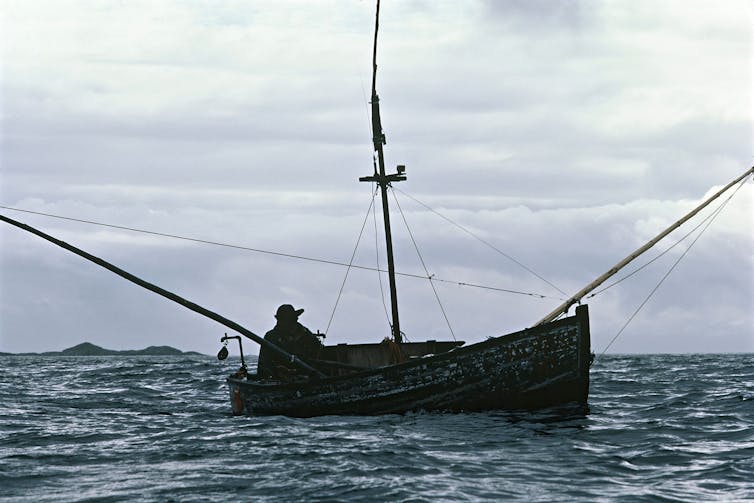Divergent Diplomatic Paths on Belarus Across the Former Soviet Union
More than three weeks after Belarus’ presidential election, in which President Alexander Lukashenko claimed victory with 80 percent of votes per state figures, the resulting public protests have been massive and unrelenting.
Western eyes have been largely on Russia, where President Vladimir Putin said recently that Lukashenko asked him to be prepared to send support. “There is no such need now, and I hope there won’t be,” Putin reportedly said. He went on to comment on alleged “foreign forces” trying to turn the situation to their advantage. “They want to influence those processes and reach certain decisions, which they think conform with their political interests.”
In an earlier call with German Chancellor Angela Merkel, per a Kremlin readout, “Russia pointed out that foreign attempts to interfere in the country’s domestic affairs were unacceptable and could further escalate tensions.”
While analyzing the politics of Belarus are outside my ambit here at The Diplomat, the response to the election and the protests from across the former Soviet Union is worth drawing attention to. Not only is the raising of the specter of a “color revolution” par for the course frequently trod by Eurasia’s autocrats, but in viewing the whole of the former Soviet Union we can see which way their political winds blow: West, or toward Russia.
I wrote more on the perception of color revolutions in 2016, after then-Kazakh President Nursultan Nazarvbayev warned that foreign actors were stirring up that summer’s protests in a possible bid to trigger a revolution:
In Central Asia, fear of color revolutions drives many government conversations about the rare instances of violence and unrest — that or Islamic extremism. The characterization of the color revolutions in the post-Soviet space in the early 2000 is colored by where one stands. In the West, the color revolutions (particularly Georgia’s 2003 Rose Revolution, Ukraine’s 2004 Orange Revolution, and Kyrgyzstan’s 2005 Tulip Revolution) are framed as popular uprisings in response to entrenched and corrupt leaders. In Russia, the color revolutions have been described as a form of subversive warfare – with the implication that the United States, in particular, not just inspires but finances them.
Those former Soviet republics with the closest ties to the West and Europe have led the way in crying foul after the Belarus election. Sviatlana Tsikhanouskaya, the main opposition candidate, was forced to flee to Lithuania, which along with Estonia and Latvia has targeted Lukashenko and 29 other Belarusian officials with travel bans. The three Baltic states are backed by movement in the wider European Union to sanction Belarus.
Ukraine has frozen its relations with Belarus, choosing abstinence over too quickly taking a side. Ukrainian Foreign Minister Dmitry Kuleba said recently that all contacts have been put on hold. “As soon as we see that these contacts are not fraught with any reputational, moral or ethical risks for Ukraine, they will be resumed.”
Further afield from Europe, the states of the former Soviet Union have been less decisive than the Baltics. In the Caucasus, Armenia and Azerbaijan finally agree on something: that Lukasheno was victorious. Both Armenian Prime Minister Nikol Pashinyan (who, it has to be noted, came to power propelled by street protests) and Azerbaijani President Ilham Aliyev extended congratulations.
Georgia has kept quiet, though Tbilisi has seen rallies in support of the Belarusian protesters.
And then there’s Central Asia: Kazakhstan, Kyrgyzstan, Tajikistan, and Uzbekistan all sent quick congratulations. According to Belarusian state media, Uzbek President Shavkat Mirziyoyev lauded the “high turnout” as demonstrating “the huge trust of the Belarusian people” in Lukashenko. Turkmen President Gurbanguly Berdimuhamedov probably sent congratulations too (I just can’t find a news report on it), but he definitely wished Lukashenko a happy birthday this week.
Most interesting, to me at least, is Kyrgyzstan. While Bishkek traipses around the same circles as Belarus — the Commonwealth of Independent States (CIS), the Collective Security Treaty Organization (CSTO), the Eurasian Economic Union (EAEU) — the current Kyrgyz state was built on a so-called color revolution. Arguably, the Kyrgyz authorities have moved away from the cries for democracy that motivated both the 2005 and 2010 revolutions, but they remain central to the state’s political consciousness. The Kyrgyzstan angle is all the more fascinating because even as Bishkek congratulated Lukashenko, it sent a note of protest because Belarus is harboring a few fugitive former Kyrgyz leaders.
After exit polls on August 9 showed Lukashenko with nearly 80 percent of the vote, Tsikhanouskaya told the media, before being disappeared for several hours and reappearing in Lithuania, “I believe my eyes, and I see that the majority is with us.”
The sustaining of protests in Belarus amid crackdowns, the forced flight of Tsikhanouskaya, and a global pandemic combined into a significant challenge for Lukashenko. If he falls, Belarus’ Central Asian and Caucasian partners will have some awkward diplomatic dances to do. The divergent diplomatic tracks for the states of the former Soviet Union in response to the election and protests in Belarus are perhaps not surprising — European and Euro-friendly states condemning and Russian-leaning congratulating — but it is an interesting marker in the political development of the region writ large.









